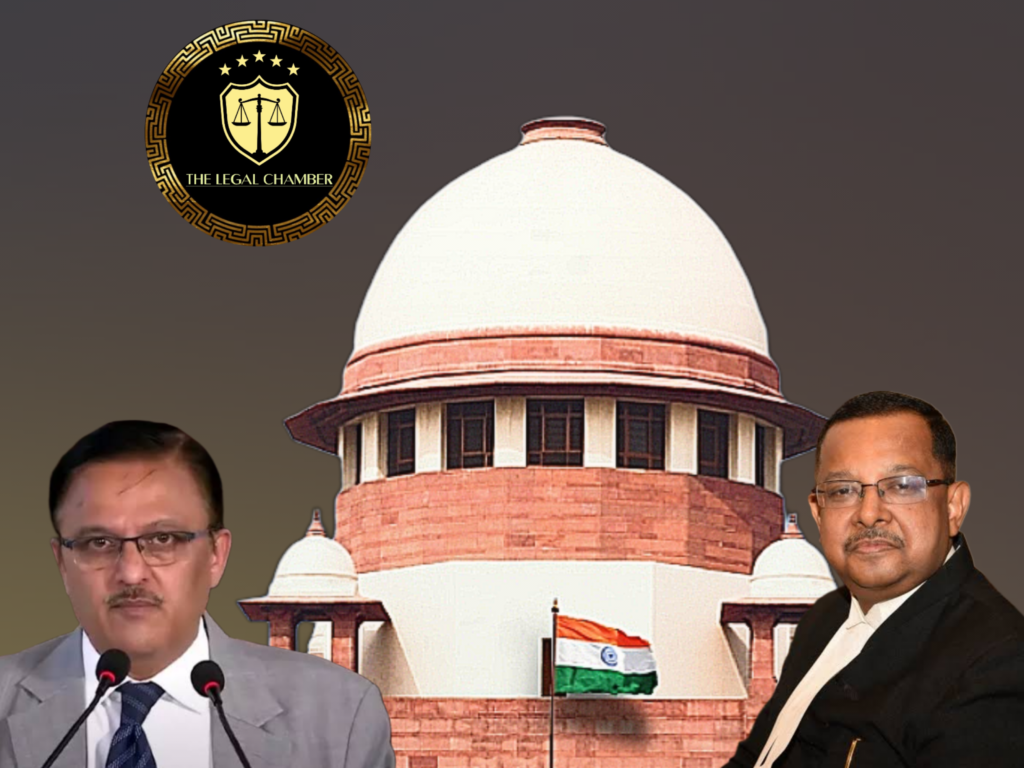
The Supreme Court held that signing a full and final discharge voucher under financial duress does not extinguish arbitration rights if the validity of the settlement is challenged. Following Boghara Polyfab and SBI General Insurance, it ruled that arbitral tribunals must examine coercion claims, and courts under Section 11(6) of the Arbitration Act need only confirm the existence of an arbitration agreement. The judgment reaffirms that “accord and satisfaction” does not automatically nullify arbitration clauses unless expressly agreed, emphasizing minimal judicial interference at the referral stage. Economic duress and arbitrability are left for the tribunal’s determination.
Facts Of The Case:
The appellant, Arabian Exports Private Limited, engaged in meat exports, suffered heavy losses due to unprecedented rainfall and flooding at its Taloja plant in July 2005. It held two insurance policies with the respondent, National Insurance Company Ltd.—a Standard Fire and Special Perils Policy and a Fire Declaration Policy—covering damages to the plant, machinery, and stock. The appellant filed claims totaling Rs. 5.71 crores, but after prolonged delays, the insurer offered only Rs. 1.88 crores in December 2008. Under financial strain from creditors and bankers, the appellant reluctantly signed an undated discharge voucher and accepted the reduced amount.
However, it immediately contested the settlement, reserving arbitration rights and demanding the balance. When the insurer refused arbitration, the appellant approached the Bombay High Court under Section 11 of the Arbitration and Conciliation Act, 1996, seeking arbitrator appointment. The High Court dismissed the plea, holding that the discharge voucher constituted full settlement. On appeal, the Supreme Court reversed the decision, ruling that claims of economic duress and coercion must be examined by an arbitral tribunal, and mere acceptance of payment does not bar arbitration unless parties expressly waive it. The Court appointed a sole arbitrator to adjudicate the dispute.
Procedural History:
The case originated when Arabian Exports filed arbitration applications before the Bombay High Court under Section 11 of the Arbitration and Conciliation Act, 1996, seeking appointment of an arbitrator after National Insurance Company refused its arbitration demand. The High Court dismissed the applications on 2 December 2011, holding that execution of the discharge voucher constituted full and final settlement of claims. Arabian Exports then approached the Supreme Court through special leave petitions (Civil Nos. 16907-16908 of 2012), which were converted into civil appeals (Nos. 6372-6373 of 2025) after leave was granted. The Supreme Court, in its judgment dated 6 May 2025, reversed the High Court’s decision, emphasizing that arbitrability of disputes involving discharge vouchers must be determined by arbitral tribunals. The apex court appointed a retired Bombay High Court judge as sole arbitrator and directed parties to commence proceedings by 15 May 2025, concluding the matter with no order as to costs.
Read Also: Supreme Court Explains When Courts Can Recall Witnesses: Order 18 Rule 17 CPC
Court Observation:
The Supreme Court made several key observations while delivering its judgment. It emphasized that the mere execution of a discharge voucher does not automatically extinguish arbitration rights, particularly when the validity of the settlement is challenged on grounds of coercion or economic duress. The Court relied on precedents like Boghara Polyfab and SBI General Insurance to hold that such disputes remain arbitrable unless parties expressly waive arbitration. It clarified that courts examining Section 11 applications should only determine the existence of an arbitration agreement, leaving substantive issues like “accord and satisfaction” for arbitral tribunals to decide under the kompetenz-kompetenz principle.
The judgment underscored that financial distress and undue pressure could vitiate voluntary settlement, making arbitration necessary to examine such claims. Importantly, the Court observed that discharge of contractual obligations does not ipso facto terminate the arbitration clause, preserving the remedy for disputes arising from the settlement itself. These observations reinforce minimal judicial interference at the referral stage while safeguarding access to arbitration for bona fide disputes.
Final Decision & Judgement:
In its final judgment dated May 6, 2025, the Supreme Court allowed the appeals and set aside the Bombay High Court’s order that had rejected the appointment of an arbitrator. The apex court held that the appellant’s claims regarding economic duress and the validity of the discharge voucher were arbitrable disputes that must be examined by an arbitral tribunal. Emphasizing the principle of minimal judicial interference at the referral stage, the Court ruled that the existence of an arbitration agreement was sufficient to refer the matter to arbitration, regardless of the alleged full and final settlement.
Justice Ujjal Bhuyan, writing for the bench, appointed Justice (Retd.) Suresh Chandrakant Gupte as the sole arbitrator and directed the parties to commence proceedings by May 15, 2025. The judgment reaffirmed that arbitration clauses survive even after alleged discharge of contracts, unless expressly terminated by parties. No costs were awarded, and all pending applications stood disposed of with this decision.
Case Details:
Case Title: Arabian Exports Private Limited vs. National Insurance Company Ltd. Citation: 2025 INSC 630 Appeal No.: Civil Appeal Nos. 6372-6373 of 2025 (@ Special Leave Petition (Civil) Nos. 16907-16908 of 2012) Date of Judgment: May 6, 2025 Judges/Justice Name: Justice Ujjal Bhuyan & Justice Abhay S. Oka
Download The Judgement Here